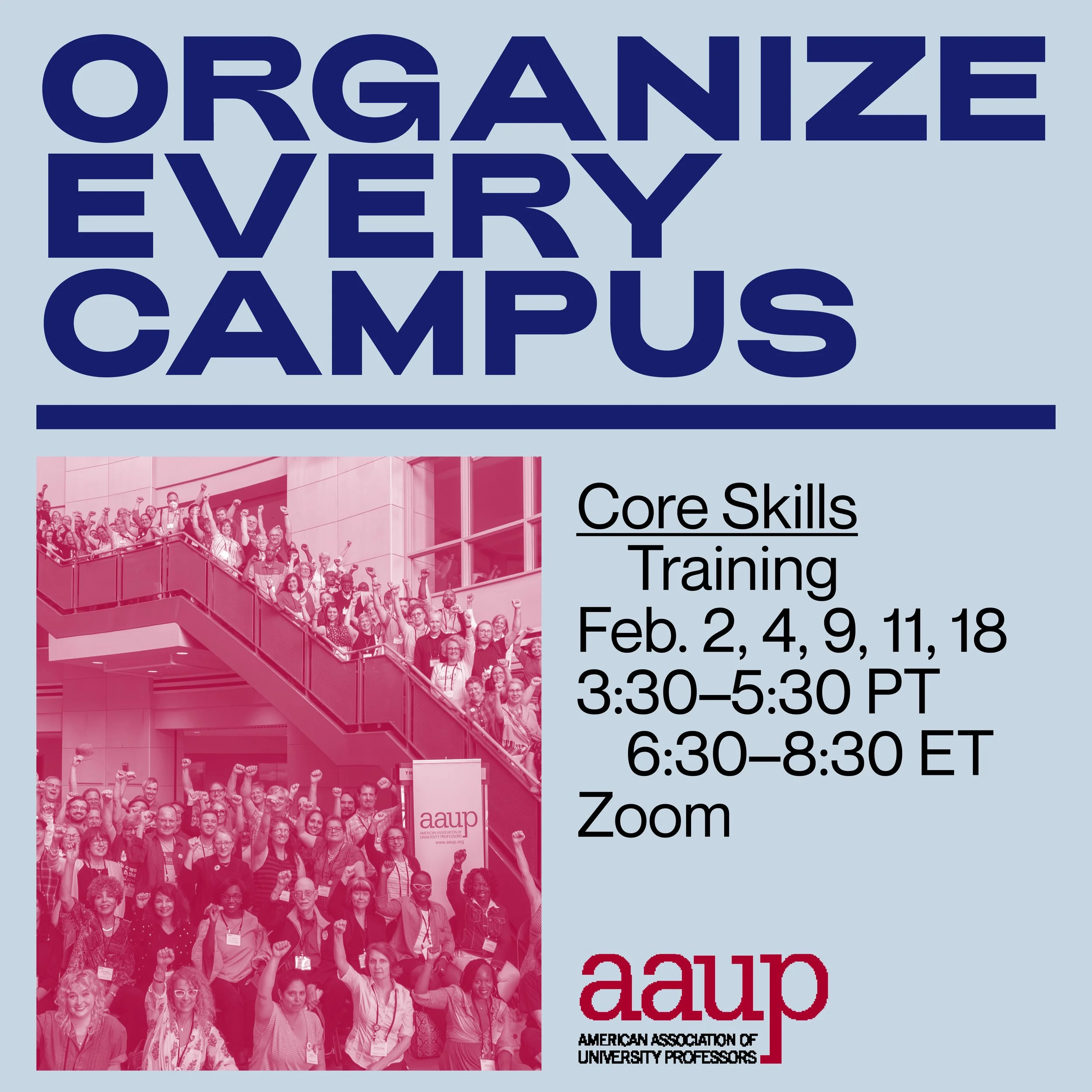
Spring Core Skills Training
AAUP will host Core Skills organizing training on Zoom in February. Registration extended to January 26.

Core Skills Training
AAUP will host an Organizing Fundamentals training for academic workers on October 24 & 25 on Zoom. Register by October 17.
